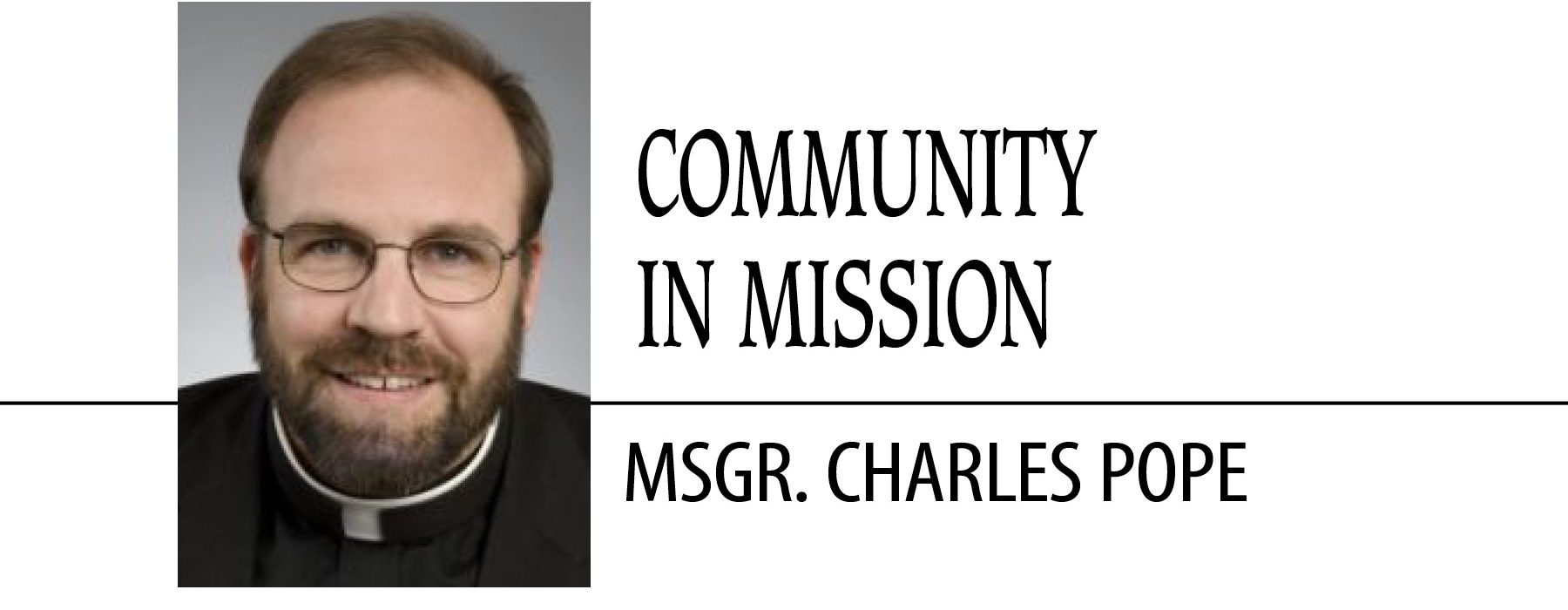September 30, 2020 // Perspective
How does idealism affect marriage?
Those who seek to strengthen holy matrimony and stem the tide of failed marriages propose many remedies, among them better catechesis, improved marriage preparation and greater emphasis on the sacrament in sermons. All of these are fine ideas and necessary steps, but let’s also ponder a deep but often unexplored root of the trouble with marriage today: idealism or unrealistic expectations.
Although we live in cynical times, many people still hold a highly idealistic view of marriage: that it should be romantic, joyful, loving and happy all the time. It is an ideal rooted in the dreamy wishes of romantic longing, but an ideal nonetheless. “Amor omnia vincit!” (“Love conquers all!”) Surely, we will live happily ever after the way every story says.
Here’s the problem: Many want their marriage to be ideal, and if there is any ordeal, they want a new deal. Yes, many are wandering about thinking, “I still haven’t found what I’m looking for,” to borrow from a U2 song.
There is no such thing as an ideal marriage, only real marriage. Two sinners have been married. A man and a woman with fallen natures, living in a fallen world that is governed by a fallen angel, have entered into the sacrament of holy matrimony. Like the graces of any sacrament, those of holy matrimony are necessary not because things are wonderful, but because they are oftentimes difficult. Marriage is meant to sanctify. Like baptism, it offers graces that unfold gradually. The graces unfold to the degree that, and at the speed with which, the couple cooperates with God’s work.
It takes a lifetime of joy and challenge, tenderness and tension, difficulty and growth, in order for a husband and wife to summon each other to the holiness that God gives. Some of God’s gifts come in strange packages. Struggles and irritations are often opportunities to grow and to learn what forgiveness, patience and suffering are all about. These are precious things to learn and to grow in. Frankly, if we don’t learn to forgive we are going to go to hell (see Mt 6:14-15). Even the best marriages have tension; without tension there is no change.
This may not describe the ideal, happily-ever-after marriage, but it describes the real one: full of joy, love, hope and tenderness, but also sorrow, anger, stress and disappointment.
Our notion of an ideal (happy, fulfilling, blissful) marriage is also seen through the lens of our culture that has gotten very good at supplying comfort: air conditioning, medicines, indoor plumbing and electricity, nearly instant communication, vast numbers of consumer products that are reasonably affordable, etc. This all creates the expectation that everything should be comfortable and everything should be just the way I want it. There is also in our culture an impatience and need for instant gratification culture that that comes from an efficient economy: “Rush shipping,” “Have it delivered today!” “Buy it with one click” and “Download now.” If the ideal marriage is not evident very soon, the disappointments and resentments along with impatience come very quickly.
There is a saying that “unrealistic expectations are premeditated resentments.” How quickly unrealistic notions of the picture-perfect marriage are dashed on the shoals of reality.
Somewhere, not only in the Church’s marriage preparation programs but also in our work of assisting personal formation, we need to teach that unrealistic expectations are ultimately destructive. Our ideals are not the problem per se; but we must become more sober about our conception of these ideals through the lens of expected comfort in everything and instant gratification. Growth takes time. Life moves through stages. Marriage is hard, but so is life. Cutting and running from the imperfect marriage — as some do rather quickly today — is not the solution. Sure enough, one imperfect marriage leads to another and perhaps yet another.
In the past, even the relatively recent past, people tended to stick things out, to work through some differences while agreeing to live with others. We would do well to regain something of this appreciation that earthly life is a mixed bag, that there are going to be challenges. Marriage is no different. Though we may idealize it, we should be aware that we are setting ourselves up for resentment and disappointment if we don’t balance it with the understanding that marriage is hard, because life is hard.
Clearly there are many other problems that contribute to today’s high rate of divorce, but an overlooked root is the expectation of an ideal marriage. Yes, many want their marriage to be ideal, and if there is any ordeal, they want a new deal. (We would do well to remember that in a world full of adults behaving like this, it is the children who really get a raw deal.) This is a deeper and less discussed cultural root of our divorce problem, a deep wound of which we should become more aware.
Msgr. Charles Pope is the pastor of Holy Comforter-St. Cyprian Catholic Church, Washington, D.C.
The best news. Delivered to your inbox.
Subscribe to our mailing list today.






